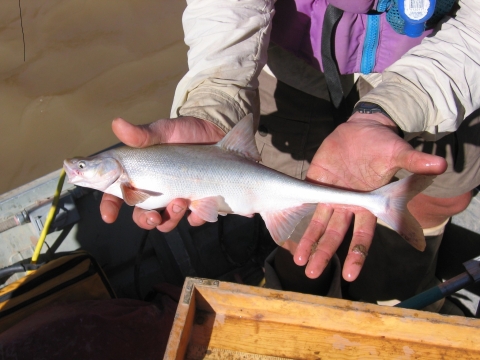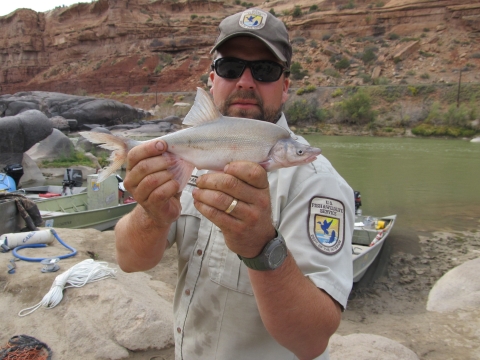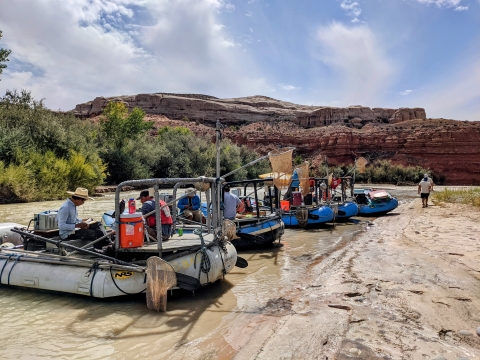What We Do
The Grand Junction FWCO mission is to identify and implement methods to recover the endangered Colorado pikeminnow (Ptychocheilus lucius), humpback chub (Gila cypha), bonytail (Gila elegans), and razorback sucker (Xyrauchen texanus). Species will be considered recovered when populations are self-sustaining in the wild, threats are reduced, and adult numbers are sufficient to maintain long-term genetic diversity. Ultimately, the goal is for these fish to no longer need the protection of the Endangered Species Act.
Management and Conservation
Grand Junction FWCO field station activities include basin-wide monitoring of rare fish populations and their habitats, basic life-history and management-oriented research, instream-flow assessments and recommendations, database management and analyses, and fish propagation. Primary conservation projects in recent years include assessing status and trends of riverine Colorado pikeminnow and humpback chub populations, assessing the status and trends of the razorback sucker population in Lake Powell and that population’s interactions with adjacent riverine populations, reducing the impacts of introduced fish on native species, restoring fish passage fish passage
Fish passage is the ability of fish or other aquatic species to move freely throughout their life to find food, reproduce, and complete their natural migration cycles. Millions of barriers to fish passage across the country are fragmenting habitat and leading to species declines. The U.S. Fish and Wildlife Service's National Fish Passage Program is working to reconnect watersheds to benefit both wildlife and people.
Learn more about fish passage over diversion dams, rearing and stocking razorback sucker and bonytail to augment declining populations in the wild. Ouray National Fish Hatchery-Grand Valley Unit typically releases upwards of 20,000 endangered fish yearly into their native habitats in the upper Colorado River basin.
Our Projects and Research
We use applied sciences and innovative technology to drive today’s management practices and enable the U.S Fish and Wildlife Service to work effectively with our partners to meet today’s complex conservation challenges. Grand Junction FWCO conducts research on the life history of four endangered Colorado River fish and the habitat that supports them. Knowledge of the biology of the fish and their ecological requirements is essential to understanding the threats these fish face and to developing management strategies for their recovery. Studies have included such subjects as timing and location of spawning, distribution and relative abundance of larvae and young-of-the-year, dispersal patterns of adults, seasonal habitat requirements, growth rate, survival rate, sex ratio and food habits.






